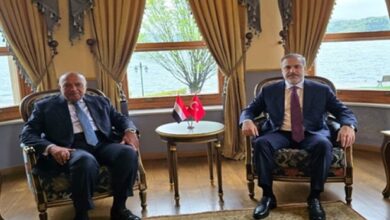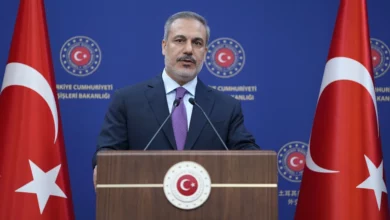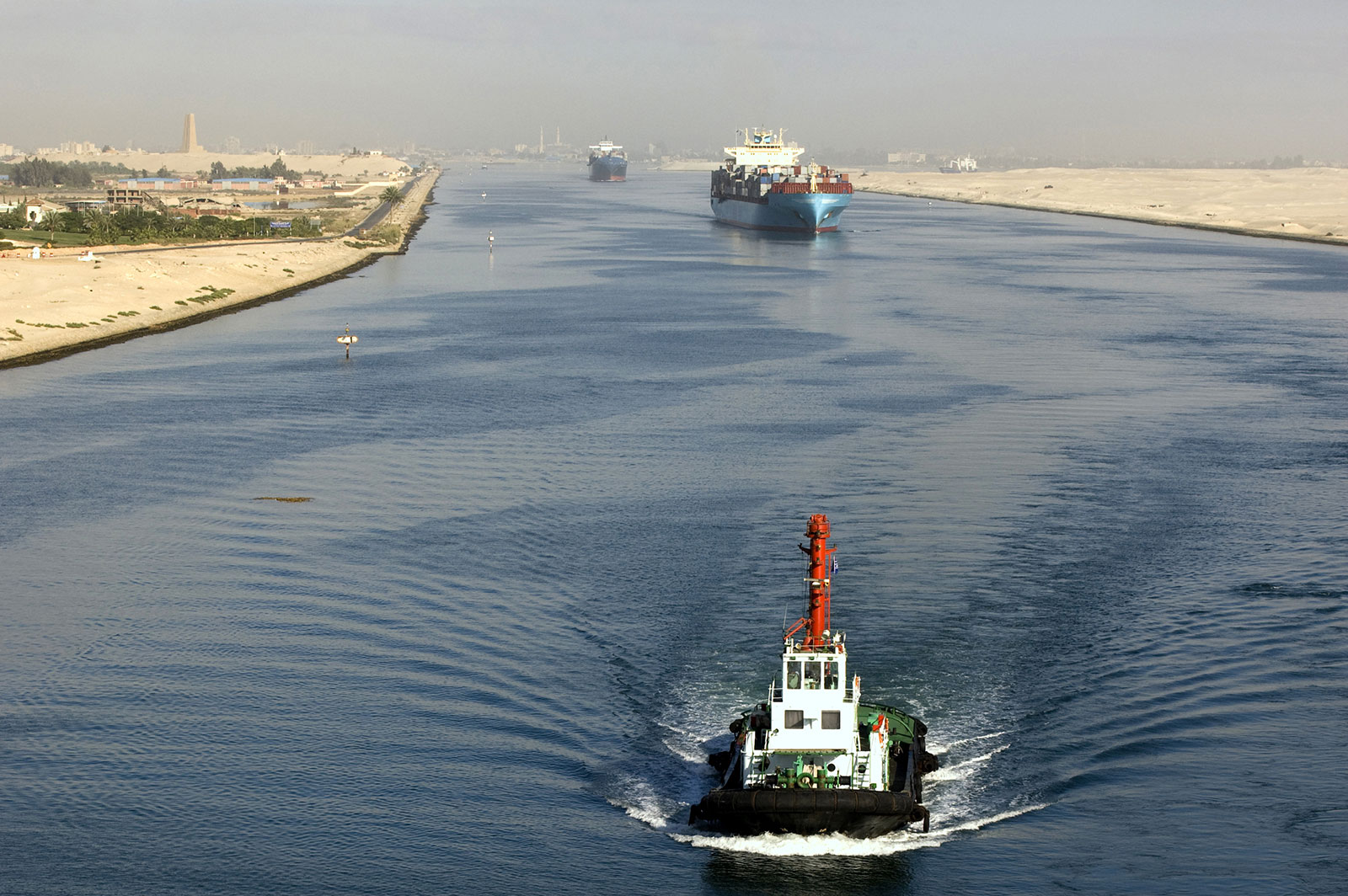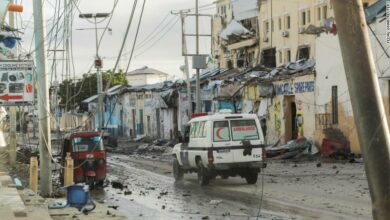The changing presence of Turkey in the Middle East signals a new balance of power, experts say.
Since the onset of the 20th century, Turkey has historically been tied to the West, particularly when it served as a buffer against the Soviet Union during the Cold War. Renewed relations with the US followed the signing of the Oslo peace accords in 1993 between Israel and the Palestinians. Former US President Bill Clinton labored to create a bloc of friends in the region, and Turkey was at the forefront of those friends after the signing of a military cooperation agreement between Ankara and Tel Aviv.
This relationship was shaken when President George W. Bush came to power in 2000 and introduced a series of conservative policies that led to the Iraqi war–widely considered in Turkey to be a threat to its national interests, given its shared border with the country. In 2003, Turkey refused to permit 62,000 American soldiers on its soil to attack Iraq from the northern front.
Didier Billion, expert on Turkey and the Middle East at the Paris-based Institut de Relations Internationales et Strategiques (IRIS), explains that “2003 marked the beginning of a period of turbulence in the Turkish-US relations, even though it never came close to a rupture in bilateral relations.”
In the aftermath of the second Gulf war, Turkey started realizing its regional importance and engaged in many initiatives directed at various Middle-Eastern countries. According to Billion, the most striking of these initiative was “the warming of relations between Turkey and Syria, which was extraordinary especially because the two countries had been on the verge of a gun battle in 1998 over the allotment of water from the Euphrates River that Syria considered insufficient, and Syrian support for the Kurdistan Workers Party (PKK), considered by Ankara to be a terrorist entity that seeks independence.”
After Syria, Turkey drew closer to Iraq, Lebanon and Iran, adds Billion.
Mostafa al-Labbad, the director of the Cairo-based al-Sharq Center for Regional and Strategic Studies sees 2003 as a turning point in Turkey’s diplomacy and foreign policy.
“When the US invaded Iraq in 2003, there was a vacuum in the region that Turkey partially filled," al-Labbad said. "Indeed, the Middle East was the only regional field where Turkey could play a growing role without colliding with other forces, as there were no superpowers in the region.”
Motaz al-Khateeb, a researcher focusing on Islamic studies explains that Turkey’s refusal to let the US troops attack from its territory showed “more patriotism and a more pro-Iraqi attitude than most Arab states.”
Moreover, relations Turkish-Israeli relations became increasingly strained after the Cast Lead operation on Gaza that killed 1300 Palestinians between December 2008 and January 2009. Turkish Prime Minister Recep Tayyip Erdoğan, called the war in Gaza "a crime against humanity” and at the World Economic Forum in Davos, the Turkish prime minister said to the Israeli president, “You are killing people,” before storming out of the meeting.
“This was a political calculation on Erdogan’s part that changed the perception of Turkey in the Middle East,” said Billion, “even though I think he honestly felt outraged by the Palestinian cause, just like most of Turkey’s public opinion.”
Earlier this year, on 31 May, the Turkish humanitarian vessel “Mavi Marmara,” on its way to Gaza, was boarded by Israeli soldiers in international waters and nine Turkish peace activists were killed. This incident struck a heavy blow to Turkish-Israeli relations and was the impetus for the present-day freeze of their military cooperation.
These strong stances, experts say, created interest and curiosity about Turkey in the region.
“We are a nation of workers and builders,” Turkish ambassador in Cairo, Hüseyin Avni Botsali, explained to Al-Masry Al-Youm. “We built important parts of Europe before the Second World War, that were completely demolished during the conflict, and then we helped rebuild Europe again. We have built 180 billion US dollars worth of infrastructure in the region, in any direction: Iran, Russia, Maghreb, Iraq, the Gulf and Egypt. […] We built the new terminal of Cairo Airport.”
Omar Taspinar, the director of the Turkey Project at the Brookings Institute in Washington DC, said at a conference at the American University in Cairo that “Turkey is the most capitalist country in the region that is blessed by the absence of oil.” This lack of energy resources in the form of oil and gas has forced Turkey to be creative.
“Although Turkey lacks the resources, it has a great experience of partnership in the region, a vibrant service sector and daring entrepreneurs that are gradually transforming Turkey into a hub for peaceful coexistence,” says Botsali.
Through the creation of the Tbilissi-Ceylhan pipeline, Turkey re-identified its position as a hub in the East/West, North/South energy corridors. “[The pipeline] also provides Turkey with a long-term guarantee of supply for its domestic consumption,” Botsali added.
There has been rising concern in the Middle East that Turkey, as a regional power, would become expansionist–a concern Botsali refutes: “Turkey does not nourish ambitions in the land and riches of its neighbors."
While Turkey is reconstituting itself as a regional power, it seeks more than ever European Union membership.
Many commentators explain that Turkey’s diplomatic move toward the Middle East is a kind of weariness and growing frustration in reaction to a slow EU integration process. Opened in 2005, negotiations for Turkey’s full EU membership have been taking their time, with France and Germany more keen on strengthening the union as it is rather than expanding it.
“The process is not stalled. European integration is a civilizational project for Turkey, and the fact that we are diversifying our diplomacy is also to show Europe how valuable Turkey’s role has become,” Botsali countered.
Billion too praises the “particularly intelligent strategy of the Turkish Foreign Minister Ahmet Davutoglu, who is leading Turkey to become a regional power while maintaining its will to access the EU.”
According to Billion, Turkey’s diplomacy is walking on two feet: One in Europe, and one in the Middle East. “By having a more global type of diplomacy and stronger ties with his neighbors, Turkey is proving how useful it can be to the EU,” he said.
And as Botsali explains it, since Turkey achieved custom union in 1996 with the European Union, Turkish borders are European borders, at least economically speaking.
“If Europe thinks by excluding Turkey it’s going to avoid the problems in the area, it's a wrong vision, because Turkey’s borders with Iraq, Iran, Syria are European borders,” he said.
“Like Egypt, Turkey has inherited multiple millennia of human civilization. In that light, Turkey hopes to become a bridge, rather than a wall between civilizations."




